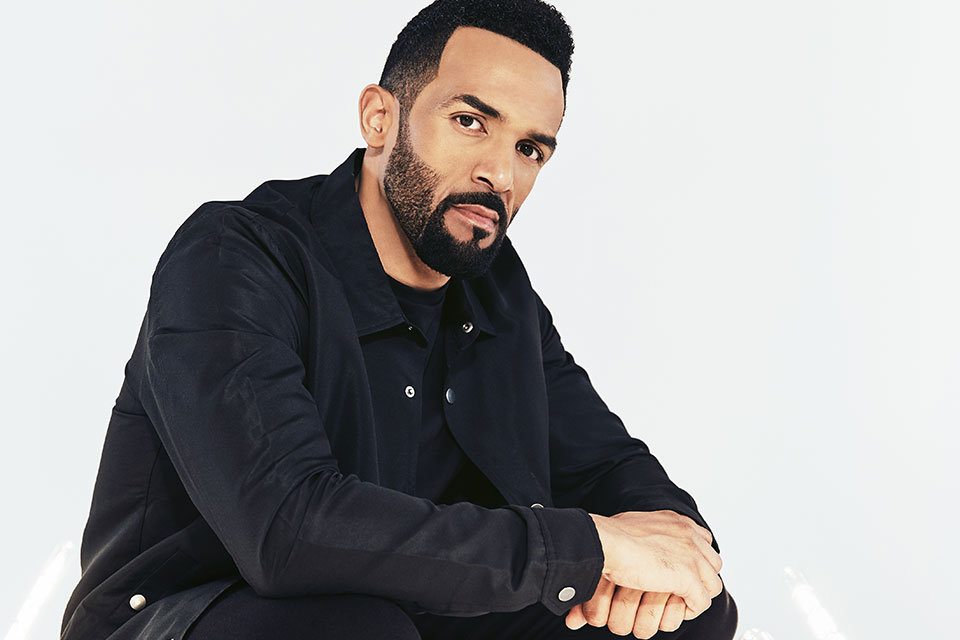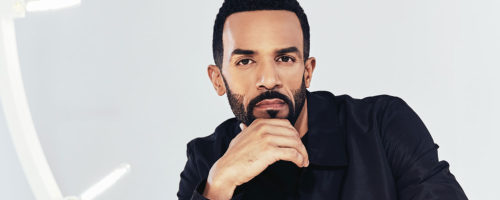When you encounter an artist, who has sold millions of records worldwide, you might expect there to be bit of ego or larger than life persona. Not with Craig David. though. While on tour promoting his latest album, The Time is Now, the humble, easy-going David sat down with Urbanology to look back at his widely successful career and highlight the importance of living in the moment and being true to one’s self.
Having made his break into music as a 17-year-old, David, now 37, has seen his fair share of ups and downs. The high of selling over seven million records off his first album was balanced out with the lows that come with fame and buying “into the hype.” The U.K.-born singer, songwriter, producer and DJ has seen his career come full circle and for him the time is truly now.
Why is the time now? What is it time for?
We tend to project, ‘when I do the next thing, that’s when I’m going to be complete,’ ‘When I get that cheque life is gonna be cool,’ or ‘when I meet that girl or that guy whatever the situation is life is good!’ For me it’s realizing it’s only this moment; the journey is what it’s all about . . . So, for me I just realized that it makes it so empowering, like us having this convo is the only thing that matters to me right now.

What’s changed in your life and specifically to your music through these past decades that you’ve been in the industry?
It’s kind of gone full circle. I use the Following My Intuition thing (title of his previous album) ’cause when I was a kid I didn’t know what institution was, but there was something in my heart that was saying stay indoors and finish these songs. Those songs ended up becoming Born to Do It (his debut album), which was one of the biggest albums. Those times when I was telling my friends listen, ‘I ain’t coming out tonight, I need to finish this song’ and them saying ‘Ahh man, you’re going on like you got a record deal’ and I’m like, ‘listen something is telling me I need to finish this, ’cause if I come out with you we’re going end of drinking, my voice is going to end up smashed, it’s going to take me two to three days to recover and I ain’t got time for that.’ When those songs became “Fill Me In” and “7 Days” and “Walking Away” and seven million albums later, people are like, ‘Ah okay, I kind of get what you were talking about.’ I think the difference now is that, [I’m] leaning into that unknown place where I can have that magic again.
I know we’ve talked about artists from back then trying to come out and reinvent themselves or do tours and whatnot, was that something that you felt pressure to do? I know you took a hiatus, you came back a few years ago, and now you’re back at it again. Did you feel pressure to relive some of that?
I moved out to Miami about five, six years ago and I just started enjoying the Miami lifestyle you know? The sun in the day, you want to be by the beach and enjoy that. And then I had a studio in my home and I was trying to get into that, but then at night you want to go out to the clubs and the restaurants. So, Miami was definitely one of the most unproductive places to make music, but was the best for lifestyle.
But then that played out for a year and a half, two years and I was like going to the clubs and feeling like, ‘I can’t buy into this praying to a wooden table, like there’s a bottle of vodka on here and that makes me important? Nah.’ And that’s not knocking anyone who’s rocking hard 9 to 5 and want to turn up for the weekend, that’s cool. For me I just felt like I bought into this VIP thing, where all I’m feeling is drinks spilling all over me, cramped up and I’m sitting behind a red rope and on the other side is someone with a little bit of space living life. I’m thinking, ‘I was sold a dream and I bought into it!’ So, I started throwing this house party in my home called TS5 and that’s the birthplace of me having a new entry point for me doing what I did before Born to Do It which was me DJing. I think that’s been a very pivotal part of this whole re-emerging of my music.
I can draw into all this late ’90s, early 2000s but as long as I work with the young, up and coming producers. That’s the key, be part of the wave.
When you were putting together this album, what were your goals?
When I made Born to Do It, my reference point wasn’t even radio, or TV, it was just like, I was in the studio this morning, this is sounding like it’s bumping to me, I wanna go home to my little flat, I wanna play it on my hi fi system and if it felt good there that’s gassed me enough. Then I thought, when the weekend comes, I’m going to go play this out, that was my head. And it was fun! It wasn’t, did you sell the right records, did you get the statistics? That’s what you get when you buy into the hype. Remove those things and all of a sudden, you’re back to just having a fun time. That’s where the house party element was key for me for TS5, I was used to making mixtapes back in the day and selling them in my barbers, that’s how I was buying more vinyl. I’m not selling them in the barbers anymore but I was throwing them up on SoundCloud and then seeing how that developed into my new performance alongside my acoustic performances and dance stuff.
Can you talk a little bit about what went into making the song “Talk to Me Pt. II”? You did it with an artist, Ella Mai, whom you’ve personally shouted out a couple times on social media.
I would always listen to other artists before I’d go into a session. So, I’m in the studio now with my producer and we throw on Ella Mai and we were just listening to a whole bunch of her tunes and there was one in particular I just posted up as a Insta-story and I tagged her in it and I just said, ‘ah this is the tune!’ and next thing I got a response back like, ‘ah I can’t believe you’re listening to my tune!’ and I was like, ‘you’re wicked, your voice is crazy!’ So, we had this moment and next thing you know we’re like let’s get in the studio and work together. And so, the first thing we did together was “Talk to Me Pt. II.” I wanted to go in where those Aaliyah, “One in a Million,” “4 Page Letter” kind of records where it’s like the proper slow jams, the “Nice & Slow” from Usher. We were able to make that sound of music, which for me, even though it has its essence back in the ’90s and 2000s, we’re in that cyclical thing where that music is current now. That’s why I’m like I can draw into all this late ’90s, early 2000s but as long as I work with the young, up and coming producers. That’s the key, be part of the wave. That’s how you’ll become fresh and relevant and you don’t lose your own identity because you’ll just be you.
What’s next for you? What’s the future hold for Craig David as you look ahead to 2018 and beyond?
I feel like I’ve got a body of work that — not to say it’s ahead of its time — but it’s fresh and relevant. It’s got all the essence of the music I grew up listening to that people will discover this album and my loyal fans who have been with me for years will be able to tap into it and be like, ‘Craig’s on his A-game again.’
Photos supplied by Sony Music Canada




1 Comment
Dope read.